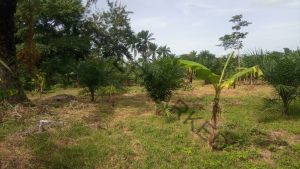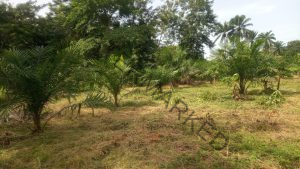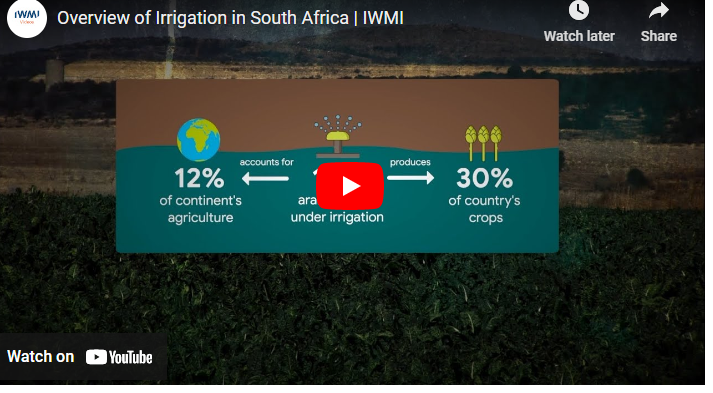Farming in Uganda is one of the most lucrative businesses to venture into today. Research has proven that before the end of 2027 agriculture market in Uganda is expected to experience a 4.5% growth in CAGR, which is more reasons the sector is begging for more hands.
Agriculture in Uganda contributes the largest quota to the national GDP. To put it right, Uganda’s major source of income is derived from Agriculture. Do you know that agricultural farming activities contribute more than 23% to Uganda’s national GDP?
To start farming in Uganda, you need to decide which field of agriculture you are venturing into, procure land, deforest the land, get a better breed of the crop you want to cultivate, and start planting.
In today’s guide, we will be talking about the intricacies of venturing into agriculture in Uganda and a step-by-step guide to starting your own farming.
How To Start Farming In Uganda With No Money [Step By Step]

To start an agriculture business in Uganda, here are the step by step approaches to follow;
Step 1: figure out the type of farming you want to start
The most prevalent agricultural operations include crop farming and animal husbandry, although there are many others.
Read Also: [Complete Guide] How to Grow Cashew In Uganda
We, on the other hand, believe you’re here to grow crops. Before you begin, decide how big or little you want your crop-growing business to be.
Read Also: How To Start Poultry Farming Business In Uganda [Beginners Guide]
You don’t have to go big or tiny to get started. You can simply start in your own backyard. Focusing on what to do, how much money you need to save, and a host of other issues will help you make the best decisions possible.
Step 2: Get trained on the crop you want to grow
You may need to do further research on the crop you want to farm if it’s not standard practice in your selected locale. No matter what type of farm you wish to create, the finest agricultural methods vary by type, so you should do further research before getting started.
Read Also: [Beginners Guide] How To Grow Beans In Uganda
In the event that you require assistance in a particular area, please let us know in the comments section. Agronomists can advise you on the appropriate agricultural practices for the area you’ve chosen.
Read Also: How To Start A Lucrative Farming Business In Philippines
Step 3: Locate a farming site

You may need to scout for farmland to start cultivating your desired crops. You may consider the option of buying or borrowing one. In the event that you have little capital to start your farm, you may go for the option of borrowing one.
Step 4: Start Deforestation of the land
Next, you must remove all trees, grasses, shrubs, and forests from the farmland. A machine or human labor can be used to accomplish this goal.
Manual work is most appropriate for farms with an area of 1 to 3 acres or less, therefore consider this when making your decision. But if you plan to buy or acquire more than 5 acres, a machine should be used.
Read Also: How To Start Farming In Ghana Step By Step Guide
In order to make farming more efficient and less time-consuming on the farm, burn the vegetation that has been cleared after clearing the land.
Step 5: Prepare Ridges to start planting
You may need to hire a tractor to start making ridges for you if you are considering venturing into large-scale farming.
If you are planning small-scale farming, all you need to do is hire manual labor to make heaps or ridges for you.
Step 6: Spray Your Cleared Farmland With Herbicides
Another option you should consider to make your farm easy to manage and to control weeds efficiently is to first spray the new land you just deforest with herbicides.
Read Also: How To Start Farming With No Money In South Africa (Zero Capital)
This will help keep weed in check, it will also help reduce the speed of weed growth which in the long run a benefit you.
Step 7: Get Quality Crop Breed
The next thing is to scout for farm or agro stores that sell quality farm crop breeds. This is important because quality crop seed will determine the quality of yield you will expect on your farm.
You can consult with an expert farmer in your vicinity to know the best breed for the crop you intend to plant.
Step 7: It is time to start planting
After you are sure of getting a quality breed, then it is time to start planting the seed you just procured. Different seed requires different planting skills.
You can let us know in the comment section if you need help planting any crop of your choice.
What is the importance of agriculture in Uganda?
Agriculture has helped Uganda in several ways and they include;
Reduction of Unemployment:
In Uganda today, farmers are making living for themselves and caring for their day to day activities without depending on the government or white collars jobs
Read Also: How To Start Vegetables Farming Business In Nigeria (Step by Step Guide)
Production of Food For Consumption:
Locally, agricultural practices have helped make food available for all and sundry in Uganda. Without extensive farming activities in the country, there will be a shortage of food supply which may lead to social vices.
Reduction of social vices:
Agriculture in Uganda has helped to curb many vices that should have occurred in the country owing to the fact that those who should carry these vices out are busy farming and producing food for the nation.
It Helps improve economic activities:
Without the supply of Coffer which is one of the most grown and most profitable crops in Uganda, the country’s GDP may not be worth it.
Farming has helped improve the economy of the country.
What kind of agriculture is in Uganda?
The common agricultural practices in Uganda are the cultivation of tea, coffee, livestock, sugar, fish, cotton, edible oils, plantains, tobacco, beans, cassava, corn, cassava, sweet potatoes, sorghum, millet, and groundnuts.
What is the most profitable cash crop in Uganda?
The most profitable crop in Uganda is Coffee.
How profitable is farming in Uganda?
Farming is one of the most lucrative businesses in Uganda. This is not far-fetched from the fact that agriculture contributes the largest quota to the country’s Gdp.
Conclusion
Uganda’s government is seeking ways to bring more youth into the farming section so as to boost the maximum agriculture production in the country. With this in view, we have listed all you need to know about starting a farm in Uganda.
If there is other information you need, you may get across to us in the comment section.




Guidelines on soybean farming in Northern Uganda on the following:
– best variety
– soil preparation
– planting – how to space
– weeding
– common pests and appropriate agro-chemicals to use
– harvesting and post-harvest handling
– WHERE IS THE MARKET?
Thank you in advance
Thank you for your comment.
Market for farming products are relative.
As per farming produce, you may decide to sell at local markets, or go international and search for countries in need of your particular crops in Large quantities as source of their raw materials for whatever they produce, then you can get their right connection system to start shipping down to them.